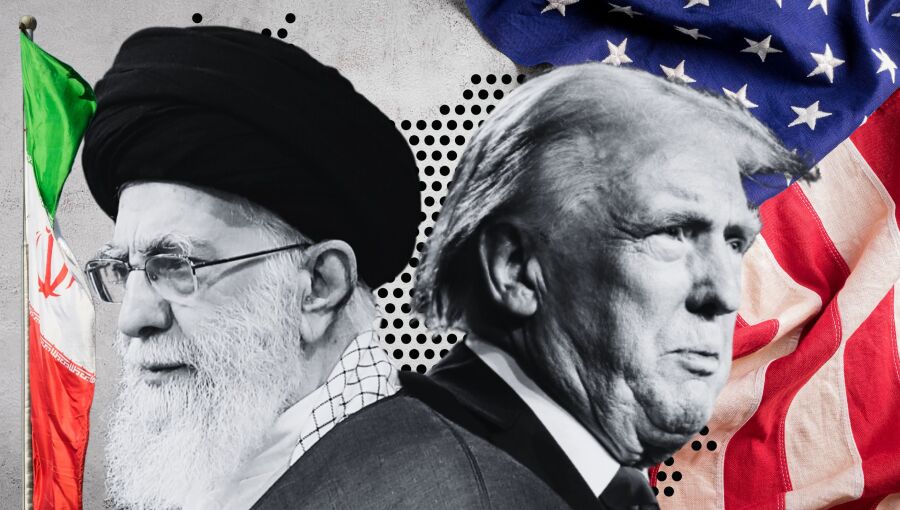Iran Nuclear Talks that has reignited cautious optimism across diplomatic circles, the United States and Iran have resumed nuclear negotiations in Muscat, Oman. The closed-door meeting, which lasted three hours on May 11, 2025, marked the fourth such discussion since the quiet reactivation of backchannel diplomacy earlier this year. With representatives from both countries signaling a continued interest in resolving nuclear tensions, the talks may represent a fragile but necessary step toward long-term stability in the Middle East.
This latest round of talks reflects a renewed urgency from both sides to prevent further escalation of regional conflict and rebuild diplomatic bridges, even as major points of contention remain unresolved.
The Core of the Dispute: Uranium Enrichment and Mutual Trust
At the center of the negotiations lies one of the most contentious issues: Iran’s uranium enrichment program. The United States has remained adamant that Iran must cease enrichment activities on its own soil. This position stems from longstanding concerns about the potential for enriched uranium to be used for developing nuclear weapons, an outcome Washington has long sought to prevent.
On the other hand, Iran, led by Foreign Minister Abbas Araghchi during the Muscat talks, has not wavered in its assertion that it has the sovereign right to enrich uranium for peaceful, civilian purposes. As part of its proposal, Iran is advocating for the establishment of a regional consortium involving countries such as Saudi Arabia and the United Arab Emirates. The idea is to create a transparent, multinational framework that could oversee nuclear development activities and offer a level of oversight that might assuage international concerns.
However, the U.S. remains skeptical. Special Envoy Steve Witkoff emphasized that prior agreements, including the 2015 nuclear deal known as the Joint Comprehensive Plan of Action (JCPOA), were undermined in part by enforcement difficulties and the risk of future violations. The U.S. is seeking concrete guarantees this time—something that would prevent Iran from backtracking and also ensure future U.S. administrations do not abruptly abandon any new deal.
Iran, understandably, is pressing for its own guarantees. One of its major concerns is the possibility of another U.S. withdrawal from an agreement, as happened under the Trump administration. Without legal safeguards or binding international commitments, Iran fears any new deal may end up just as vulnerable as the last one.

Missile Program: A Red Line
Iran has made it explicitly clear that its missile development and defense capabilities are not open for negotiation. Officials in Tehran view these capabilities as critical for national security, particularly given the volatile nature of the region. By taking this off the agenda, Iran has streamlined the scope of the talks, focusing squarely on nuclear issues.
While this decision has narrowed the negotiating table, it also removes one of the most polarizing elements of prior discussions. Analysts suggest that while excluding missiles may limit the comprehensiveness of any eventual agreement, it might also improve the odds of success by allowing parties to focus on more achievable goals.
The Broader Geopolitical Landscape
These negotiations are playing out in a highly dynamic and tense geopolitical environment. President Donald Trump’s recent visit to key Gulf states including Saudi Arabia, the UAE, and Qatar is widely seen as a signal of continued U.S. commitment to its regional allies. Trump’s message during the tour emphasized economic cooperation and security alignment, especially in countering what the administration continues to frame as Iranian aggression.
At the same time, fresh U.S. sanctions targeting Iranian oil shipments to China have raised tensions once again, highlighting the fragile nature of this diplomatic engagement. These sanctions are seen in Tehran as a continuation of Washington’s “maximum pressure” campaign, even as nuclear discussions resume. Iranian officials have accused the U.S. of negotiating in bad faith by simultaneously extending overtures at the table while tightening economic screws elsewhere.
The dual-track approach by the U.S.—engagement coupled with pressure—has prompted concern among some analysts, who fear that mixed signals may reduce Tehran’s willingness to compromise.
A Glimpse of Constructive Regional Involvement
One of the more innovative proposals coming from Iran during the Muscat talks is the idea of involving regional partners in the nuclear process. The proposed consortium would not only increase oversight but could also serve as a confidence-building measure among traditionally adversarial Gulf nations.
Although countries like Saudi Arabia have yet to publicly endorse such a proposal, the mere suggestion indicates Iran’s increasing recognition that regional cooperation might be a pathway to easing tensions, reducing isolation, and improving its global standing. The role of Oman as host and quiet mediator also underlines how smaller states in the region can play a stabilizing, neutral role in these high-stakes conversations.
What’s Next: Fragile Progress with High Stakes
Despite significant roadblocks, both the United States and Iran have expressed willingness to continue the dialogue. That alone is a noteworthy achievement given the high level of mistrust between the two countries. The discussions are expected to resume in the coming weeks, though no official date has been released.
Moving forward, negotiators will likely continue grappling with verification mechanisms, timelines for sanctions relief, and the exact nature of enrichment rights. These are not easy questions to answer, especially in a political climate where both sides face pressure at home to not appear weak or overly accommodating.
Still, there is a sliver of hope. As international attention remains fixed on Muscat, the world watches with anticipation. If successful, the ongoing negotiations could reduce the likelihood of military confrontation, stabilize energy markets, and pave the way for a new chapter in U.S.-Iran relations.
For now, the world can only wait—and hope—that diplomacy will prevail where so many previous efforts have fallen short.
WTW Enters Saudi Reinsurance Market with License Approval and New Leadership Appointment



